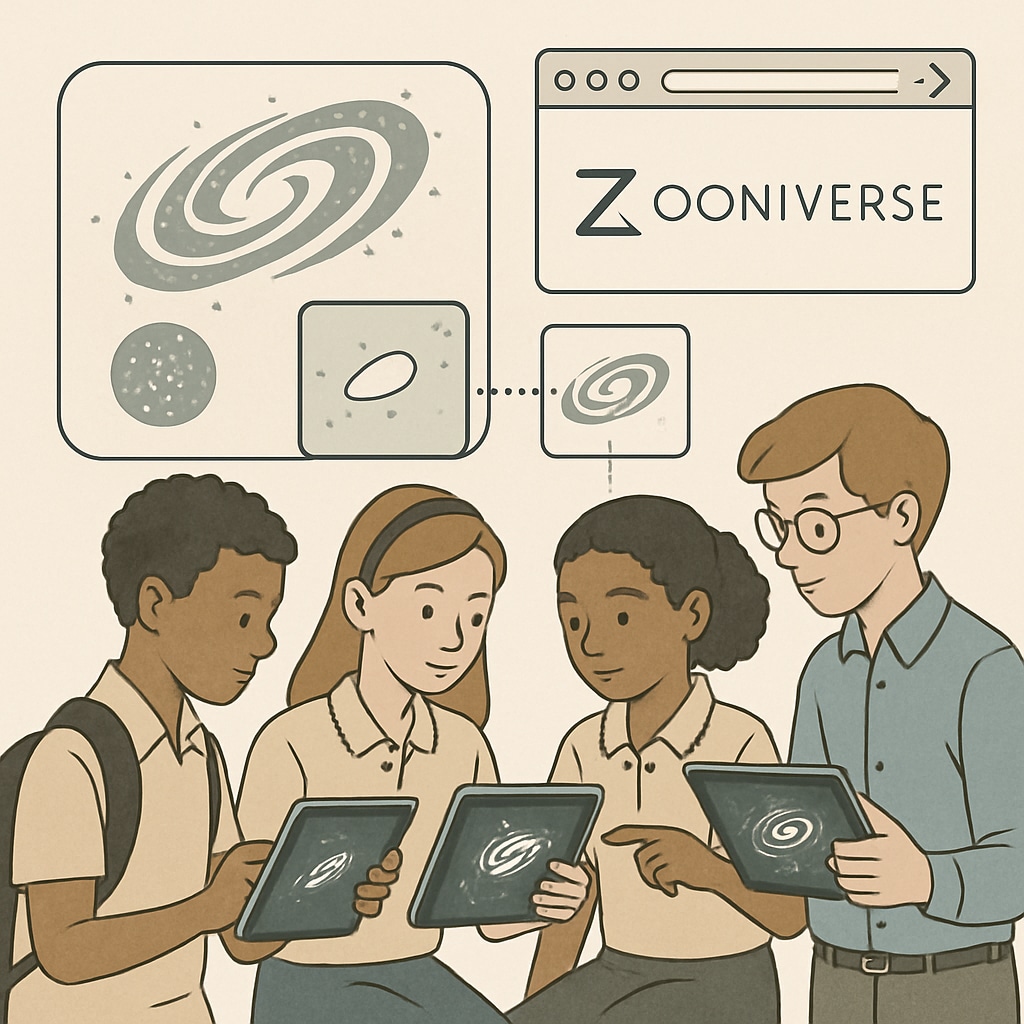Citizen science projects on Zooniverse offer a groundbreaking opportunity for K12 students to participate in real-world scientific research. By leveraging this innovative platform, educators can inspire students to move beyond textbooks and actively contribute to authentic science projects. Whether analyzing images of distant galaxies or documenting wildlife habitats, Zooniverse empowers students to develop scientific literacy while making a tangible impact on research efforts.
What Is Zooniverse and Why Is It Important for K12 Education?
Zooniverse is a leading citizen science platform that enables volunteers worldwide to assist in scientific research. The platform hosts a diverse range of projects across fields like astronomy, biology, history, and climate science. For K12 students, Zooniverse represents an invaluable tool to bridge the gap between theoretical learning and practical application.
Educational benefits of Zooniverse include:
- Developing critical thinking skills through data analysis.
- Encouraging collaboration and teamwork in group-based projects.
- Fostering curiosity and a passion for science.
For example, students can participate in projects like “Galaxy Zoo,” where they classify galaxies based on images captured by telescopes. This hands-on experience enhances their understanding of space science while contributing to cutting-edge research.

How to Integrate Zooniverse into the K12 Classroom
Incorporating Zooniverse into the classroom can be seamless and highly rewarding. Teachers can start by identifying projects that align with existing curriculum standards or student interests. Many Zooniverse projects include detailed tutorials and step-by-step guides, making them accessible to learners of all levels.
Steps to integrate Zooniverse into your teaching:
- Choose a project that complements the subject matter, such as wildlife monitoring for biology or historical document analysis for social studies.
- Introduce students to the platform by demonstrating how to navigate the project dashboard and complete tasks.
- Encourage group discussions to reflect on findings and connect the activity with broader scientific concepts.
Teachers can also use Zooniverse projects to expand STEM learning initiatives. By aligning projects with STEM goals, students not only engage in science but also practice technology, engineering, and math skills in real-world contexts.

Fostering Student Engagement and Scientific Contribution
One of the most compelling aspects of Zooniverse is its ability to transform students from passive learners into active contributors. By participating in citizen science projects, students gain a sense of ownership over their work, knowing their efforts directly impact scientific research. This can lead to increased motivation and a deeper appreciation for science.
For example, a class working on “Snapshot Serengeti” can identify animals in photos taken by motion-sensitive cameras in Africa. Not only do students learn about biodiversity, but they also contribute to wildlife conservation efforts by helping researchers monitor species populations.
Moreover, Zooniverse allows students to collaborate with a global community of volunteers and scientists, fostering a sense of connection and shared purpose. Teachers can encourage students to share their findings with peers, parents, or local communities, further amplifying their role as citizen scientists.
Why Citizen Science Matters for Future Generations
Citizen science platforms like Zooniverse play a pivotal role in shaping the next generation of scientists, researchers, and informed citizens. By engaging students in authentic research early, educators can inspire lifelong curiosity and equip learners with skills essential for tackling complex global challenges.
In addition, Zooniverse projects provide students with a unique opportunity to explore career paths in STEM fields, sparking interest in professions like astronomy, environmental science, or data analysis. As a result, introducing K12 students to citizen science not only enriches their educational experience but also prepares them for future success.
Conclusion: Zooniverse is revolutionizing K12 education by making science interactive, accessible, and impactful. By integrating these citizen science projects into the classroom, educators can transform students into active contributors to research and inspire a new generation of scientific explorers.
To learn more about Zooniverse and its projects, visit Zooniverse official website. For a detailed overview of citizen science, explore Citizen Science on Wikipedia.


